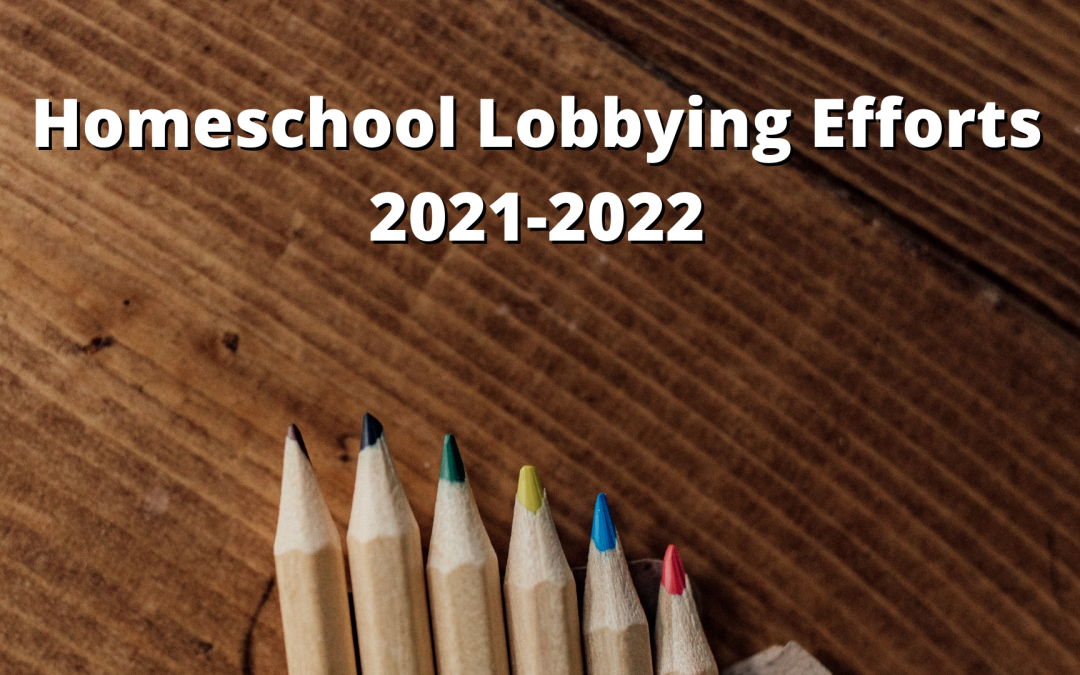For over forty years, American parents have been given the right to legally homeschool their children. Before this time, parents had to lobby individually to school their children at home. Current legislation allows homeschooling, in one form or another, in all fifty states.
“Lobbying,” is the act of influencing a public official on any issue important to voters. A lobbyist can work on behalf of individuals or private interest groups, or corporations, big pharma, big tobacco, or any other group that finds it in its best interests to shape legislative opinion to favor their client’s financial or philosophical position. Political lobbyists are most often sponsored by corporate America or by smaller special interest groups representing the general public’s needs. Homeschooling is one of those special interest groups that represent public needs.
Before the idea of lobbying took hold in American politics, individual voters who wanted to establish a legal precedent for their own special interest, had to individually contact his or her senator or representative at the state and/or federal government level. Personal contact was the only way to express their desire for more, less, or better regulation of homeschooling. (The term “lobbying” or “lobbyist” originally referred to the fact that the place this influence peddling occurred was most often actually in the lobby outside the state or federal legislative chamber.)
Especially in the case of an important interest such as homeschooling, lobbying is an inherently good thing. Lobbying is accomplished when groups of voters hire professionals skilled in the homeschool law arena to assist in protecting people with less political power who might not be heard by those politicians they hire to protect their legislative interests.
WHAT DOES A HOMESCHOOLING LOBBYIST DO?
Homeschooling lobbyists are most often full-time professionals who understand all aspects of homeschooling freedoms, regulations, and legal precedents for protecting the right to homeschool our children. Without lobbying, it may have been difficult to defeat the heavy volume of attacks on homeschooling that have occurred in the U.S. over the past fifty years. In fact, homeschool lobbyists not only defend against intrusive and potentially illegal legislation at both the state and federal government levels, but often take the initiative to work for and support laws that favor home educators.
Confusion often exists about the difference between a professional homeschooling lobbyist who works to influence specific legislations at the state and local level and advocates, whose goal it is to educate about a specific issue such as homeschooling.
WHAT IS A HOME SCHOOL ADVOCATE?
A wide range of individuals can be seen as homeschool advocates. Parents are advocates because they work to educate their neighbors, families, politicians, and others about the values of homeschooling. Homeschool bloggers are advocates because they provide information to families, students, and politicians. Overall, anyone who speaks or educates on behalf of homeschooling in the community, in churches, or neighborhoods can be identified as a homeschool advocate.
HOW PARENTS CAN BECOME HOMESCHOOL ADVOCATES
The most important thing a homeschool parent must do to effectively advocate for homeschooling is to become informed about homeschool law in their own state and school district. (For a complete listing of homeschool regulations for all fifty states, goto www.homeschoolfacts.com.) The second most important task is to contact your local school district and ask about any potential regulations specific to your school district. Many school districts have individual requirements for homeschooling.
Homeschool blogger, Naomi White, posted an article on July 9, 2021, entitled “Lobbying and Homeschool Rights.” Ms. White writes that “It is important as homeschoolers to know what is happening on the political landscape and to be willing to make your own voice heard.”
To learn how to become an effective homeschooling advocate, check out Homeschool Facts at www.homeschoolfacts.com/effective-homeschool-advocate/ . The site offers ideas for ways to become a friendly advocate for your homeschool.
HOMESCHOOLS AND THE GOVERNMENT
Homeschool lobbying organizations usually work to avoid anything related to government support or government regulation. The general approach is that government homeschool regulations and related accountability to the government is not a good thing.
In January 2017, President Donald Trump, addressing a joint session of Congress, called for a school choice bill that funded homeschooling. The largest homeschool lobbying organization in the U.S. responded with a formal letter in March 2017 thanking Trump for the shout-out, but adding: “We do, however, wish to ask that you ensure that any school choice legislative proposals specifically exclude homeschool families.”
Tax credits to offset homeschooling costs have been a point of discussion and disagreement. A handful of state governments provide tax credits to homeschoolers. Some homeschoolers claim the credits asking “why should families have to pay education taxes and homeschool costs and get nothing in return for their taxes?” Other homeschoolers believe the credits have the same effect as direct governmental financial support for homeschools and leave the credits on the table.
IN CLOSING
If you’re interested in what’s happening with homeschool lobbying efforts in 1921, the quickest route would be directly contacting homeschool lobbying groups. While they may be the biggest, the HSLDA (Homeschool Legal Defense Association) is not the only lobbying organization fighting to maintain homeschool freedoms. Other national lobbying groups include the Association of HomeSchool Attorneys, and the Cato Institute. Individual states also have their own lobbying groups for home educators.
The overall result of U.S. homeschool lobbying efforts is that homeschooling is generally unfunded, unmonitored, and often unregulated at the state and local government level.
